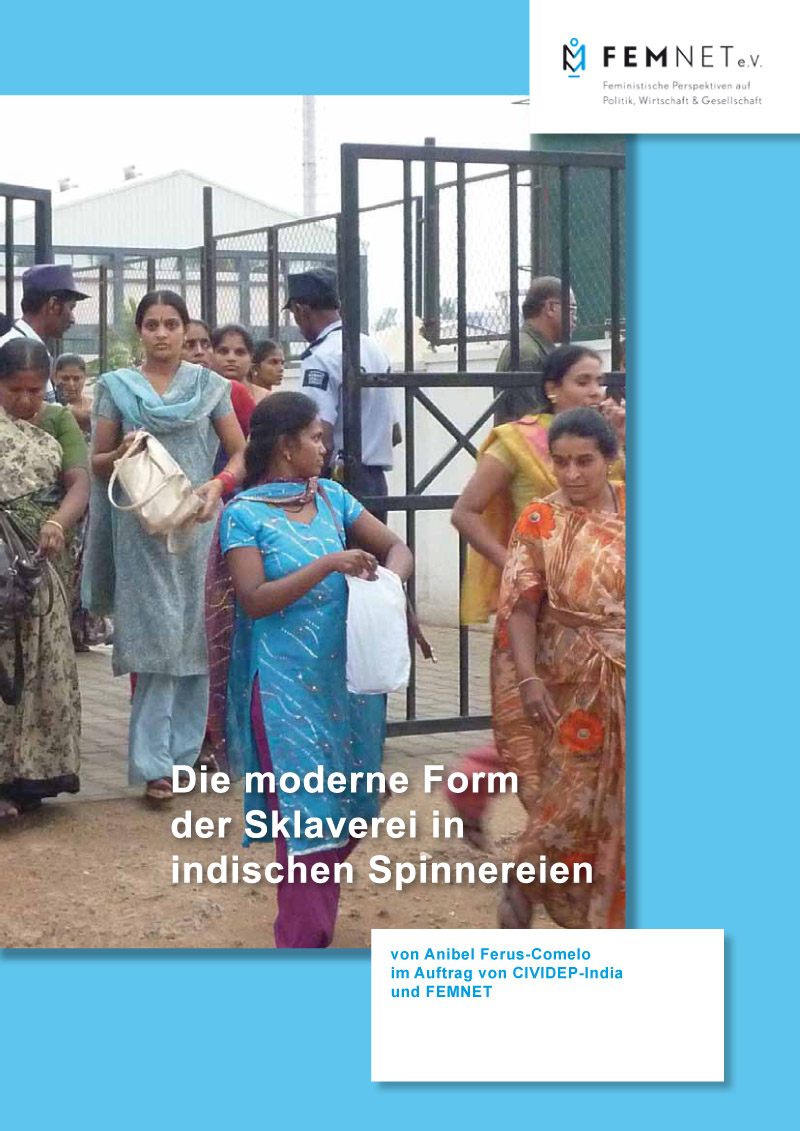Global responsibility
Low ambitions

The legal concept of “human rights due diligence” is at the heart of the guiding principles. It requires companies to assess the human rights implications of their companies’ activities and business relationships all over the world. Companies have the responsibility to identity and assess human rights risks, to take appropriate measures and to report in a transparent manner. Accordingly, Germany’s draft action plan expresses “the expectation” that German companies will implement human rights due diligence along their entire supply chains. The snag, however, is that the legal language is only binding for 174 corporate entities that belong to Germany’s Federal Government. No other company is threatened with sanctions should it fail to comply.
The Federal Government wants half of all German companies with a staff of more than 500 persons to establish management systems that ensure human-rights due diligence by 2020. The plan is to do random checks from 2018. Only should the corporate sector fail to comply, does the government contemplate additional measures, including legal ones. It is not clear, however, what criteria will serve to assess companies’ performance. It is even less obvious, moreover, that a future Federal Government will feel bound by the proposals made by the current one.
Trade unions and non-governmental organisations (NGOs) that are active in fields of global development and human rights want more to happen. We insist that human rights due diligence must be made legally binding for all corporations based in Germany and include their foreign affiliates and suppliers. Breaches of the principle must be sanctioned with fines, and victims must get legal standing before German courts so they become able to sue for compensation. Moreover, the Federal Government must not procure goods or services from companies that have been proven to disregard their human rights obligations. Finally, we demand that human rights are made a core concern when the EU negotiates or implements future trade deals.
Recent research done by various scholars has shown again and again that human-rights breaches in the context of the activities of German-based companies are nothing exceptional. On the contrary, they are a structural challenge that is evident in international activities concerning mining, energy, agriculture and manufacturing. To date, not one of the 30 corporations that are included in the DAX stock-market index is implementing the UN Guiding Principles in a comprehensive manner, though 23 of them have been blamed of human-rights breaches in the past 10 years. According to a study that was funded by the EU Commission, moreover, it has hardly any impact when private-sector companies make voluntary commitments.
It had inspired hope that the Federal Government organised a comprehensive and participatory process to discuss possible contents of its national action plan. Apart from business associations, Germany’s Trade Union Congress, the Human Rights Forum and VENRO, the umbrella organisation of developmental NGOs, were involved in the consultations. The draft text’s low ambitions, however, prove that our hopes were probably misguided in a rather fundamental sense.
The final action plan has not been finalised yet. Currently, government departments that were not involved in the drafting process are considering the matter, after which all parties concerned will get an opportunity to comment. Only then will the final text be written, so the Federal Cabinet can adopt the plan in autumn. Unfortunately, worries that the final version will be further diluted looks quite realistic.
Armin Paasch is an adviser on business and human rights with Misereor, a non-governmental development agency, and represents VENRO, the NGO umbrella organisation, in the steering committee of Germany’s Federal Government to elaborate the national action plan on business and human rights.
armin.paasch@misereor.de












